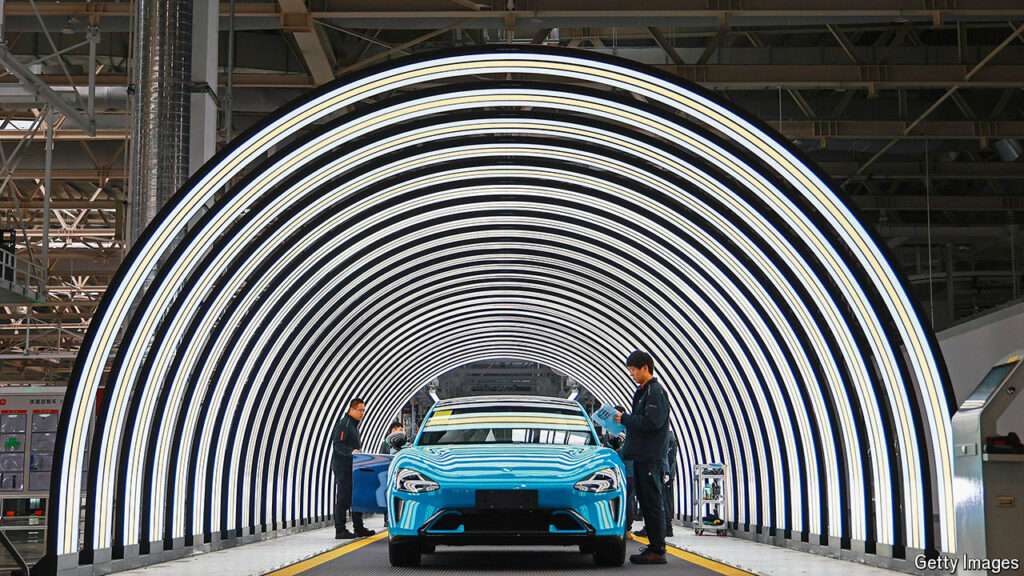The European Union has a long history of dealing with overcapacity in various sectors, most notably in agriculture with the infamous butter mountains and milk lakes created by the common agricultural policy. This policy ensured high prices for dairy farmers, leading to excessive production and wastage. However, the EU’s current concern is not about agricultural overcapacity but rather about the flood of electric vehicles and steel coming from China.
During a recent meeting with China’s ruler, Xi Jinping, in Paris, Ursula von der Leyen, the president of the European Commission, raised the issue of China’s “structural overcapacities” in manufacturing. China has seen significant growth in its steel exports, with a more than 28% increase in the first three months of this year compared to the previous year. Similarly, exports of new-energy vehicles from China have increased by almost 24%. These trends have sparked concerns in Europe about the impact on its industries and jobs.
In response to the growing competition from China, the EU is considering imposing “countervailing” tariffs to offset the subsidies that have contributed to the growth of China’s manufacturing industry. By levying tariffs on Chinese imports, the EU aims to level the playing field and protect its own industries from being displaced by cheaper Chinese goods. This move reflects the EU’s commitment to safeguarding its economic interests and preserving jobs within the union.
The issue of overcapacity is not unique to the EU-China relationship but is a global phenomenon that affects trade dynamics across various sectors. Overcapacity occurs when production exceeds demand, leading to surplus inventory and downward pressure on prices. This imbalance can disrupt markets, distort competition, and harm the viability of industries. Governments often intervene to address overcapacity through measures such as tariffs, quotas, or subsidies to protect domestic producers and maintain market stability.
In the case of China, state intervention and subsidies have played a significant role in fueling the growth of its manufacturing sector, leading to concerns about unfair competition and market distortions. The EU’s proposal to impose countervailing tariffs on Chinese imports is a response to this challenge and is intended to address the distortions caused by China’s overcapacity. By levelling the playing field, the EU seeks to ensure fair competition and protect its industries from being undercut by subsidized goods from China.
The issue of overcapacity highlights the complexity of international trade relations and the challenges that arise when countries engage in global commerce. While trade can bring economic benefits and opportunities for growth, it also poses risks and challenges, such as the threat of overcapacity and unfair competition. Governments must navigate these dynamics carefully to protect their economic interests and ensure a level playing field for businesses.
In conclusion, the EU’s response to China’s overcapacity in manufacturing reflects its commitment to addressing unfair trade practices and protecting its industries from being harmed by excessive competition. By considering countervailing tariffs on Chinese imports, the EU aims to rebalance the market and safeguard its economic interests. This initiative underscores the importance of effective trade policies in managing the challenges of overcapacity and maintaining a fair and competitive trade environment.



